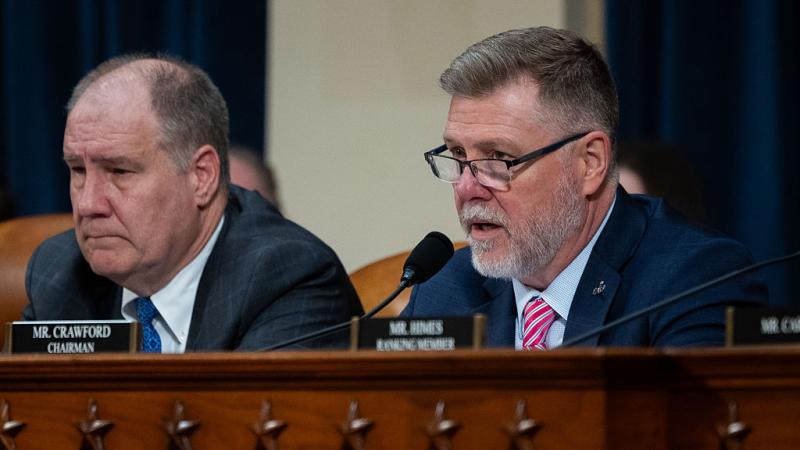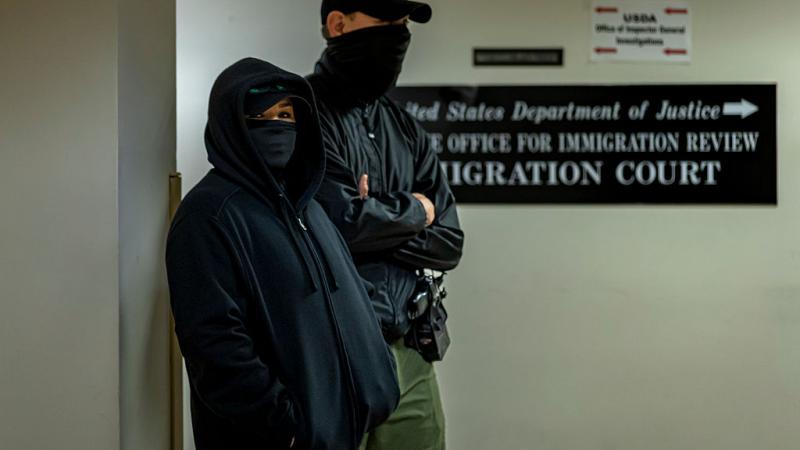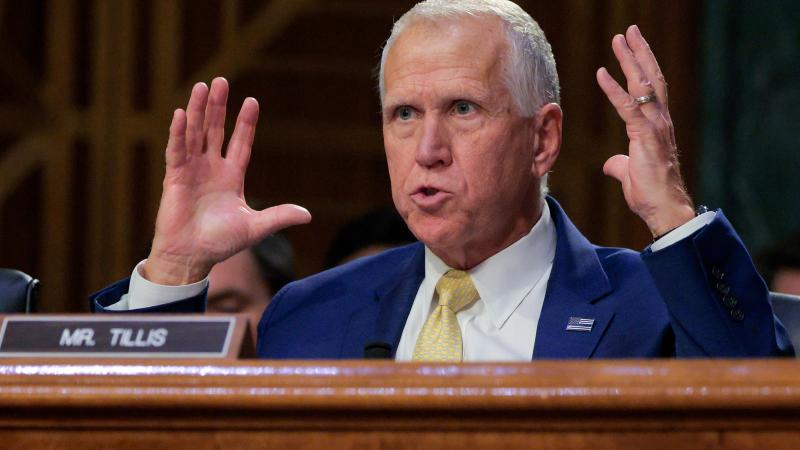Connecticut prosecuting 16-year-old under 100-year-old law banning 'ridicule'
Local NAACP wants new law with stiffer penalties in wake of racist Snapchat incident.
In 1917, Connecticut approved a law that criminalizes "ridicule" of people based on protected categories such as race and color. It only applies to advertisements.
A century later, prosecutors are wielding it against students for using racial slurs, even online or not targeted at anyone.
The recent arrest of a 16-year-old in Fairfield is drawing fresh scrutiny to the statute, with constitutional scholars calling it flatly unconstitutional and chronically applied to unrelated conduct.
The Greater Bridgeport chapter of the NAACP, however, doesn't think it goes far enough. President Stanley Lord told Just the News his group is pushing for a law that would impose stiffer criminal penalties than the 30 days in jail allowed under the ridicule law.
"A message needs to be sent to this individual" who posted a racial slur referring to a black classmate, which will also serve as a "deterrent" for other students who might do the same, Stanley said.
On the cusp of the COVID-19 pandemic last year, state lawmakers held a hearing on a bill to remove the World War I-era statute from the books, backed by a 20-year-old legislative report that questioned its constitutionality.
That legislative interest was prompted by the prosecution of two University of Connecticut students for shouting the N-word in an empty parking lot. University police pored over surveillance video and card swipe data for 11 days to identify them, prompting the students to sue the university on First Amendment grounds.
Harvard Law's Alan Dershowitz tore into the law as enabling "selective prosecution based on current political correctness," but the state's official human rights commission testified that it was necessary to "combat the bias and harassment that individuals may face" due to race or religion.
Lawmakers have less than a month remaining in the legislative session if they want to resurrect the effort. Staffers for Republican Sen. John Kissel, who led the charge against the statute, did not respond to repeated queries from Just the News. Another Republican skeptic, Rep. Arthur O'Neill, has since left the Legislature.
Connecticut's law is unusual in subjecting minors to criminal penalties for their speech. The ACLU has tried to take a middle approach, testifying against the law at last year's hearing but supporting school discipline against the unidentified student this month.
The Supreme Court heard arguments last month on a related issue: whether to let schools regulate what students can say even off-campus, outside school activities, which would subject their social media usage to constant scrutiny.
Expulsion a 'badge of honor'?
The unidentified white 16-year-old posted a photo of a black classmate, Jamar Medor, on Snapchat with a caption that read, "Why is there a [n-word] in my homeroom? Why is he not in chains?" The suspect was arrested on charges of racial ridicule and breach of peace the same day.
It was the first time Medor said he had experienced racism in school, prompting him to stay home that day. His mother said she was told the other student was suspended for 10 days, but she wanted him expelled.
The Greater Bridgeport NAACP doesn't think expulsion is enough. That's a "badge of honor" for some students, and this student could simply enroll elsewhere, Lord told Just the News. "What does he learn from that?"
He's upset that the case will proceed in juvenile court, which will prevent Medor and his family from participating, though they can later file a civil suit. The unidentified student can easily get his criminal and school disciplinary record sealed, but "at least this [arrest] will carry with him for a while," Lord said.
The state's attorney for the region, Joseph Corradino, told Just the News he couldn't comment on the disposition of the case "because Connecticut law makes confidential all records relating to juvenile court proceedings." He acknowledged "an incident at Fairfield Warde High School in which an allegation of a hate crime was made and resulted in an arrest by the Fairfield Police Department."
Lord said his group didn't actually want the Snapchat post prosecuted under the ridicule law, but was told that online conduct doesn't qualify under a more stringent hate crime law. The NAACP chapter will host a press conference next week calling for online conduct to face those heightened penalties.
When shown new research that found blacks and Latinos make up the vast majority of those arrested for anti-Asian hate-crimes in New York City, Lord said he didn't think his proposed law would end up ensnaring minorities. Those incidents tend to be physical, in-person attacks, he said.
Prosecutors don't use the law for its stated purpose
Prominent law professors are outraged that the ridicule law is still in place.
"One of the greatest threats to free speech is the chilling effect caused by ambiguous or vague standards" like Connecticut's, George Washington University's Jonathan Turley wrote this week.
The Fairfield student's case "could present an important court test for this country in resisting the criminalization of speech that we have seen in Europe," he said.
Turley noted a federal appeals court recently overturned a retired Air Force colonel's conviction for using a racial slur at a Marine base shoe store, ruling the incident was unlikely to "invoke a violent response."
UCLA law professor Eugene Volokh protested the prosecution of the UConn students at the time, saying their conduct didn't violate the ridicule law. If a court had reinterpreted the statute's reference to "advertisement" as "any statement," it would then be unconstitutionally overbroad.
Volokh reiterated his objections in response to the Snapchat incident: "I have found no prosecutions for advertisements that ridicule people based on race or religion." He told Just the News the 16-year-old appears to be the youngest person arrested under the law.
About two decades of police reports Volokh has reviewed show that prosecutors are using the statute to go after "fighting words" on the basis of race or religion, typically "face-to-face personal insults."
The problem with the prosecutions is that defendants haven't appealed convictions, likely because they involved low-level misdemeanors, Volokh said. He also criticized the student's arrest for "breach of the peace," a constitutional law that still doesn't apply to a Snapchat post.
The law professor hasn't heard from Connecticut lawmakers this time about possibly overturning the law, he told Just the News.
















